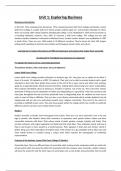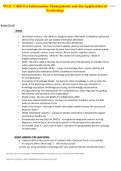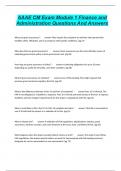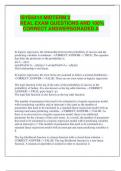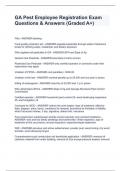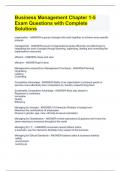Essay
BTEC LEVEL 3 BUSINESS | UNIT 1 EXPLORING BUSINESS ASSIGNMENT | LEARNING AIM A, B, C, D, & E | DISTINCTION
- Module
- Unit 1 - Exploring Business
- Institution
- PEARSON (PEARSON)
Unit 1 - Exploring Business (Full Report) DISTINCTION EXTERNAL GRADED by exam board - Distinction Learning Aim A: Explore the features of different businesses and analyse what makes them successful Learning aim B: Investigate how businesses are organised Learning aim C: Examine the envir...
[Show more]
